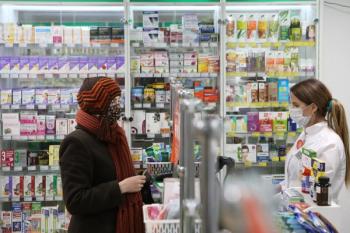
In querying pharmacists about what is required to be successful, many so-called “soft skills” in the social and administrative sciences rise to the top, but more evidence is needed.

In querying pharmacists about what is required to be successful, many so-called “soft skills” in the social and administrative sciences rise to the top, but more evidence is needed.

Mentorship is a long-term and formative process and interaction that extends beyond initial discussions regarding the mentee's career path.

Training and knowledge about appropriate communication with individuals of diverse backgrounds improves adherence, outcomes.

Pharmacy managers manage the implementation of services, including ones commensurate with everyday practice as well as newer, more patient-centered services.

Organizational determinants can play an important role in whether or not MTM programs are successful.

Evidence suggests there are benefits to a more holistic mentoring approach.

Mentorship in pharmacy is particularly important because it may contribute to the development of competent, proficient, and motivated pharmacists to lead the profession and continue to advance the field.

When employees hint or openly share that they are feeling overextended, managers should acknowledge their concerns and work toward creative solutions.

Pharmacists’ performance and ultimately their own well-being on the job can be largely determined by their effectiveness in time management.

Students and new graduates can excel in their career through leadership, communication skills, and self-efficacy.

Proactive retention strategies can improve employee satisfaction and reduce turnover rates.

Lack of acknowledgement or rewards in high-pressure pharmacy environments can lead to mental health issues.

Entrepreneurism is actually more a function of hard work, networking, and certainly a dash of creative thinking than it is eccentricity, luck, or superior genius.

Capital budgeting accompanies planning and is at the heart of very important decisions made from what can appear to be conflicting goals.

Pharmacy managers can cultivate an innovative mindset amongst staff members by adopting an attitude that is welcoming to change.

Patient-centered communication incorporates patients’ concerns, ideas, and abilities when developing a treatment plan.

Adequate training will help them recognize signs of misuse and assist with preventive measures.

Gauging patients’ satisfaction with pharmacy services provides an opportunity perhaps for improved patient outcomes in certain situations.

Pharmacy managers are the single most important factor in the level of engagement among their staff.

Pharmacy managers would do well to stay atop of literature and developments, but also learn to engage others within and outside of pharmacy in order to elicit their support and also acquire ideas.

Continuing leadership education can help further develop pharmacy leaders by teaching effective utilization of various power strategies.

Avoiding COVID-19 battle fatigue requires intentional efforts by employees and supervisors.

Organizational citizenship can be described as behaviors that are discretionary, not necessarily formally recognized by the formal reward system, and are not expressly described in the context of job duties.

Burnout among pharmacy team members can be minimized through workflow adjustment strategies and cultivating a positive workplace culture.

Patients who received information in their native language reported being more likely to understand the information about their medication.

Pharmacy managers must be transparent and should work to establish an environment where people want to trust one another and feel good about doing so.

Mitigating the likelihood of pharmacy staff burnout requires a multifactorial approach.

The COVID-19 pandemic has accelerated the prominence of pharmacies in public health by providing pharmacists the legal authority to perform CLIA-waived testing.

In order to handle workflow disruptions, it is essential to train technicians and other staff to incorporate them into the patient care process and to manage paperwork and other related tasks.

Education is key to providing information about proper techniques and bolstering patient safety.

Published: April 22nd 2021 | Updated:

Published: October 20th 2021 | Updated:

Published: April 7th 2021 | Updated:

Published: March 25th 2021 | Updated:

Published: April 15th 2022 | Updated:

Published: January 4th 2023 | Updated: